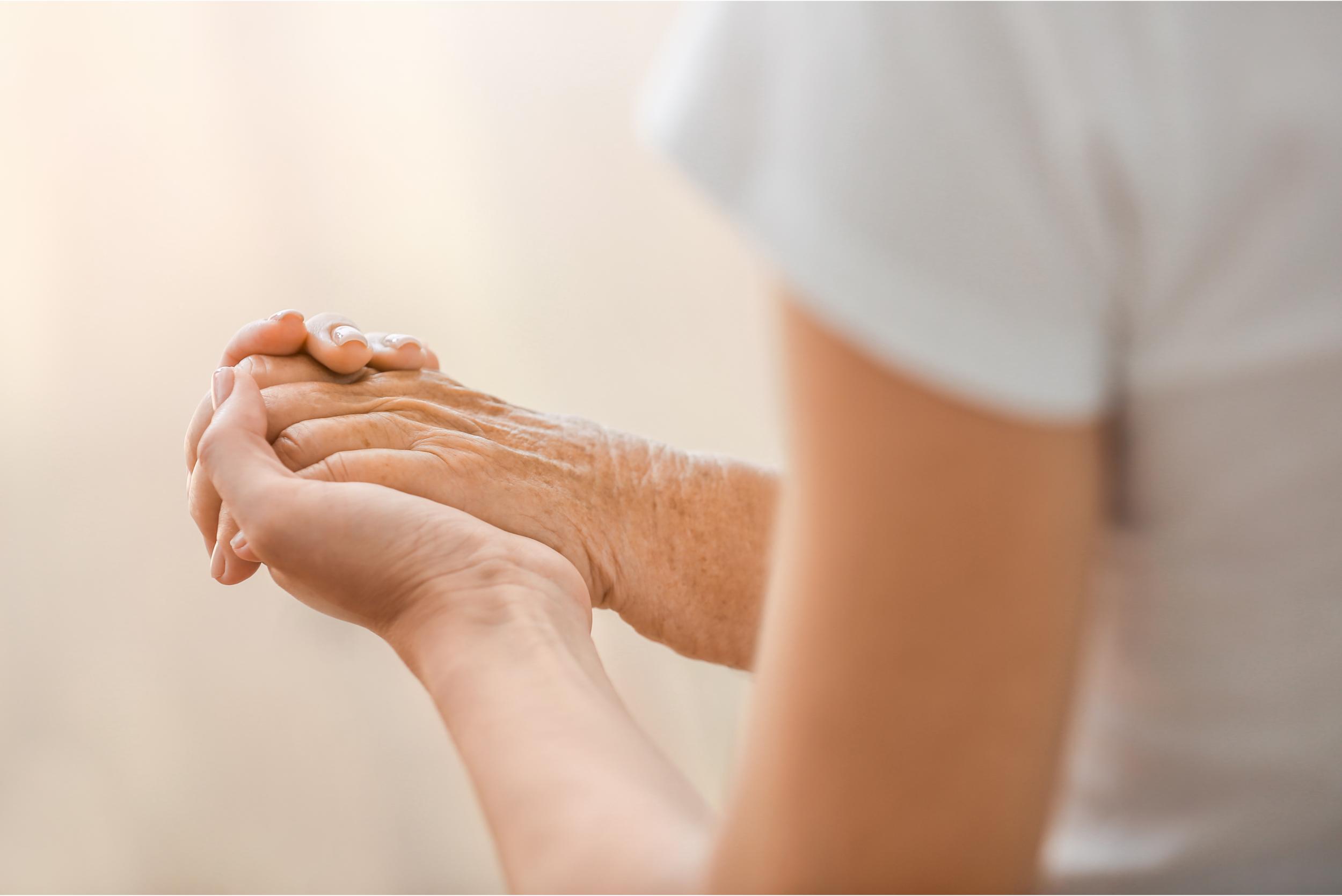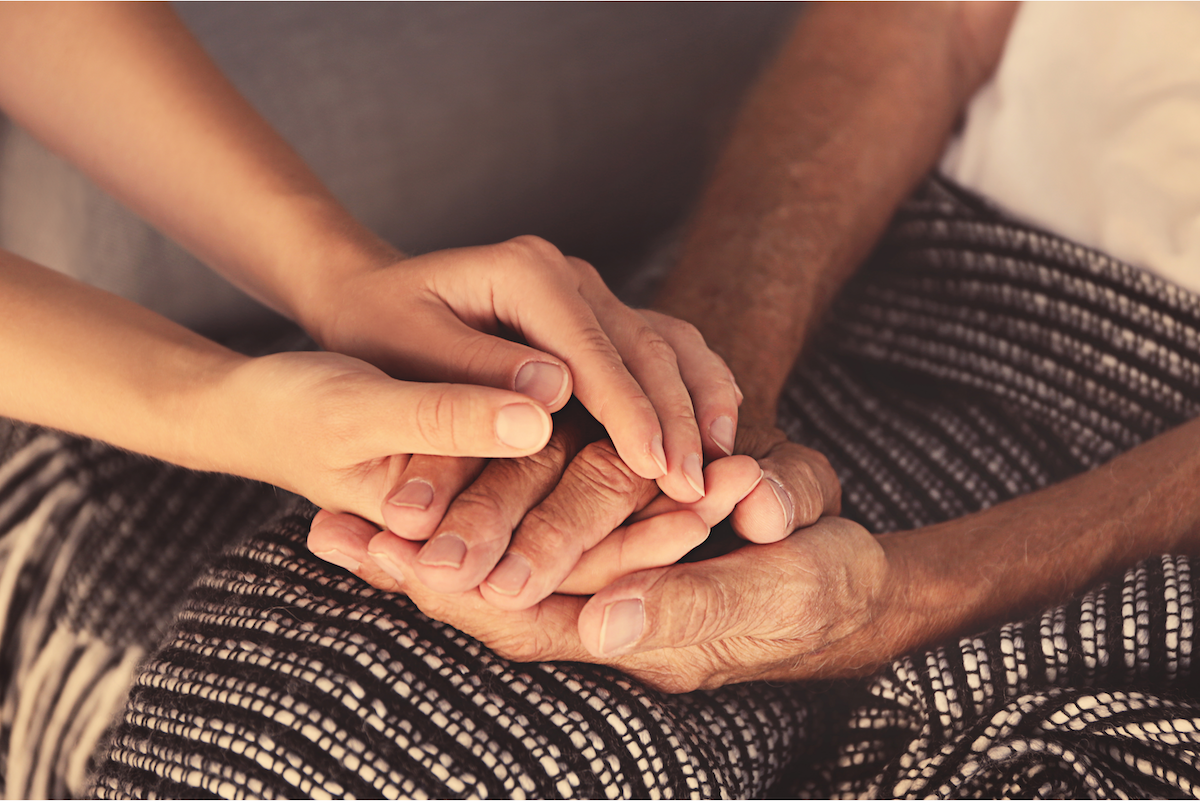Wherever Possible be Kind
5 minute read
We often tell young children that sharing is caring, and I’ve realised over the past couple of years that the same sentiment can be applied to looking after an elderly relative. So much of the ‘job’ is simply about sharing – the aches and pains, fears and frustrations, foibles and failings that come with being in the last years of life. There have been several conversations around caring in the media over the past week. The 2021 Carer of the Year, Louise Laheen Duggan, chatted with Ryan Tubridy on the radio about her win, while former UK Labour MP Ed Balls’ documentary, Inside the Care Crisis with Ed Balls, aired on BBC on Monday evening. In an interview with the Sunday Times Magazine last weekend, the father of three, who spent two weeks living and working in two care homes, said something that really resonated with me: “I’d never in my life put cream on the legs and feet of a 94-year-old lady. Her skin was delicate, like paper...But I was thinking, how can I do this in a way that’s respectful to her?”
Three years ago, I had never bathed or moisturised anybody, or shampooed hair and clipped toenails other than my own.
Like Ed Balls, I wondered how to do it in a way that wouldn't make my mother feel like she was the child, or as if she was being ‘handled’ rather than helped, because I’m not a doctor or a nurse or a professional carer. I’m not even a parent, so I’ve no real experience of putting another’s needs before my own. I’m winging it as much as any first-time mum. Swedish author Fredrick Backman once said, “The worst thing about having power over other people’s lives is that you sometimes get things wrong.” In the context of looking after an ageing parent, this quote carries a particular weight.
But equally, when Plato said, “Kindness is more than deeds. It is an attitude, an expression, a look, a touch. It is anything that lifts another person”, he could have been referring specifically to the elderly parent/adult-child relationship. The vulnerability of old age and the power it yields a carer or minder is overwhelming. The only tool available to redress this balance is kindness, and it’s what translates difficult moments into treasured memories. My mother’s privacies are limited now that her mobility is in decline. I have no choice but to invade her personal space regularly, but as it turns out these are the quiet spaces in between the pressures of day-to-day life when we’ll most often laugh together or have a hug, just as we did 40 years ago when I was a child and she took care of my every need.
In these moments, I see her frailty, yes, but I also see her strength. An aged female body was something wholly unfamiliar to me before I began looking after my mother – we don’t see them on television or in film after all – and hers has all the war wounds you’d expect of a woman who’s birthed six children and miscarried two. The scar from her lumpectomy is still healing and the skin around it remains red and raw from radiotherapy. Her hands are those of a seamstress and homemaker, hardened from round-the-clock making and doing. In these moments, there exists an unspoken appreciation of each other. She values my help, but I value everything she’s been through. Being close to her like this has inspired a greater awareness of, and empathy for, the woman she is and the life she’s lived.
Of course it’s easy to be kind when I see my mother in a vulnerable situation, like when she’s gripping onto me and the handrail in the shower equally tightly for fear of falling. It’s less easy when I’m feeling bogged down by the minutiae of minding an elderly parent: squeezing on compression socks (absolute nightmare), maneuvering feet into runners or slippers, tying shoelaces tight so they’re not a trip hazard, fetching reading glasses or distance glasses or both, and hearing my name called several times in as many minutes for something as incidental as taking the washing off the line “before the dew comes down”. God forbid.
Caring for an older parent also means a to-do list that is longer than a child’s Christmas wish-list, but all year round.
I have help from siblings, thankfully, but being at home with my mother – on the front line so to speak – means drinking in that list every day and being left with a constant hangover of must try harder and must do better.
When I wrote about caring for my mother last year, I spoke about all the things I should do but often didn’t – putting out the rubbish, cleaning out the fire, taking the washing out of the machine. She had six falls last year, but this year she’s had none because neither of us take those risks any more. I understand that this is about as much as I can do to protect her from the physical hurts of the ageing process, be that broken bones, cancer or cognitive decline. But ironically I can offer something that a medical professional can’t by virtue of their status, and that is putting my mother at ease when helping her with the daily intimacies described above. Before my Dad moved into a nursing home in 2018, he required qualified carers to help with his needs, and I remember vividly how embarrassing and demeaning he found the idea of being showered by a stranger. He became used to it, but was never comfortable with it. I couldn’t do anything for him, but I can for my mother.
The most important thing I’ve learnt is not to look on these tasks as chores or inconveniences, and certainly not to recoil from them, but to embrace them as private moments between me and my mother.
In all honesty, this has taken time. Crossing the line from companion to carer is fraught with conflicting emotions, but I appreciate now that it’s created a new kind of mother-daughter intimacy which I feel lucky to be experiencing, because it won’t last and when it’s gone, it’s gone for good. I think losing one parent focuses the mind on how long you have left with the other. When both parents are pottering around together, whatever their age, you think the world will end before they do. Kindness also counteracts any kind of coercion too. It’s something Balls puts a huge emphasis on in the Times article, explaining, “So much of caring turned out to be about choice and agency…”
He says his intention in making this piece of film was to “grasp the funny and the human and the touching and make us all think about what our future might look like.” I didn’t watch the documentary because I have a whole lot of funny and human going on here and now, and as a woman without children, I’m not ready to think about what my future might look like in this context. That’s a worry for another day.
Marie Kelly, November, 2021
dear reader, tell us what you think in the comments below
join the conversation
share and comment below, we’d love to hear your thoughts…











